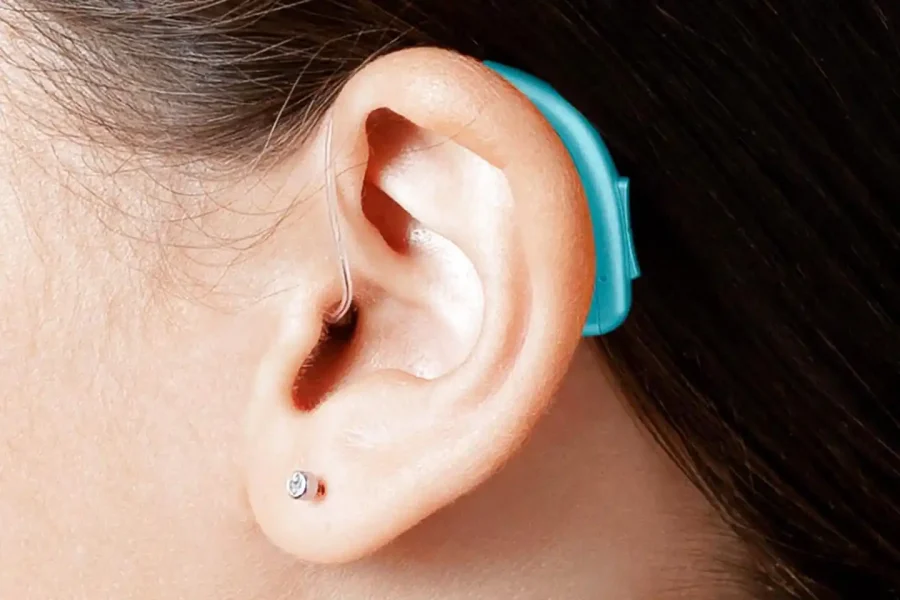As with any aspect of health and wellness, there are certain preconceptions and misconceptions that can color the way we perceive things. When it comes to hearing aids, an array of stigmas exists, which can significantly impact potential users. These stigmas can deter individuals from using these tools, often creating a barrier to improving their quality of life.
One of the most prevalent stigmas is associating these auditory devices with old age. For many, they are seen as a marker of physical decline, a flag that signifies that the vitality of youth has passed. This perception can lead to a degree of reluctance, particularly among younger adults who might benefit from using such a device, but are hesitant due to concerns about the societal perception it might project. This sentiment could likely stem from the apprehension that donning such a device would draw conspicuous attention, leading to a perception of looking absurd or out of place.
The thing is, the era of conspicuous and antiquated-looking auditory enhancement devices is a thing of the past. Today, numerous models marry style with functionality, earning high accolades in the digital sphere. For instance, Nano, Bossa and Jabra hearing aids reviews attest to their evolution - they are not only feather-light but also remarkably unobtrusive, a stark contrast to the devices produced a decade ago. In fact, their design often resembles that of a standard wireless earpiece, making them blend seamlessly into everyday use, hardly warranting a second glance from bystanders.
Simultaneously, another stigma exists - the idea that using an auditory device represents a form of disability or weakness. This notion can be potent, particularly in societies where self-reliance and independence are highly valued. The step of acknowledging a hearing impairment and addressing it by using an auditory device may be seen by some as an admission of vulnerability or even defeat.
The ramifications of these stigmas can be far-reaching. They can cause individuals to delay or refuse treatment, leading to potential cascading effects such as reduced communication abilities, social isolation, and even cognitive decline. Given these significant consequences, it is crucial to tackle these stigmas head-on and normalize the use of these life-enhancing tools.
Education and awareness form the first line of defense against these stigmas. By understanding the role and function of these auditory devices, people can begin to see them as tools designed to enhance a sense - much like glasses or contact lenses are for vision. Clear, accurate information about the prevalence of hearing loss across all age demographics and the significant benefits of using auditory devices can help to dispel the myth that their use is exclusively associated with aging or disability.
The media plays an instrumental role in shaping public perception, and it is no different in the case of auditory devices. By positively and accurately representing individuals who use these devices in films, television shows, and advertising, the media can help to normalize their use and challenge pre-existing stereotypes.
Advocacy is another powerful tool in this battle against stigma. Users who have benefitted from these devices can become advocates, sharing their personal stories and educating others about their experiences. This personal touch can help to dispel stigmas and provide support, encouragement, and even inspiration to those who might be hesitant about using such a device.
Technological advancements are also helping to dismantle these stigmas. With the evolution of technology, hearing aids are becoming smaller, more discreet, and more appealing to potential users. Features such as Bluetooth connectivity and AI-enhanced sound processing, not to mention rechargeable batteries, make these devices not just more efficient but also more user-friendly, which can help to shift the perception of these devices as a positive, enabling tool rather than a marker of disability.
Healthcare professionals have a critical role to play in this scenario as well. By actively addressing and challenging these stigmas during consultations, they can provide reassurance and accurate information to individuals who could benefit from these devices. Moreover, by working in tandem with device manufacturers to offer a range of aesthetically appealing and technologically advanced options, they can help to shift the perception of these devices from a symbol of impairment to a tool for enhancing the quality of life.
Finally, it's important for individuals to remember that using these devices is a personal decision that should be based on their needs and comfort. If a person feels that using an auditory device will improve their quality of life, they should feel empowered to make that decision without fear of judgment or stigma.
And while the stigmas surrounding the use of auditory enhancement devices persist, there are multiple strategies at our disposal to combat these prejudices. Through a combination of education, positive representation, advocacy, technological advancement, and the proactive role of healthcare professionals, we can create a shift in societal norms and expectations.
The content is intended to augment, not replace, information provided by your clinician. It is not intended nor implied to be a substitute for professional medical advice. Reading this information does not create or replace a doctor-patient relationship or consultation. If required, please contact your doctor or other health care provider to assist you to interpret any of this information, or in applying the information to your individual needs.

